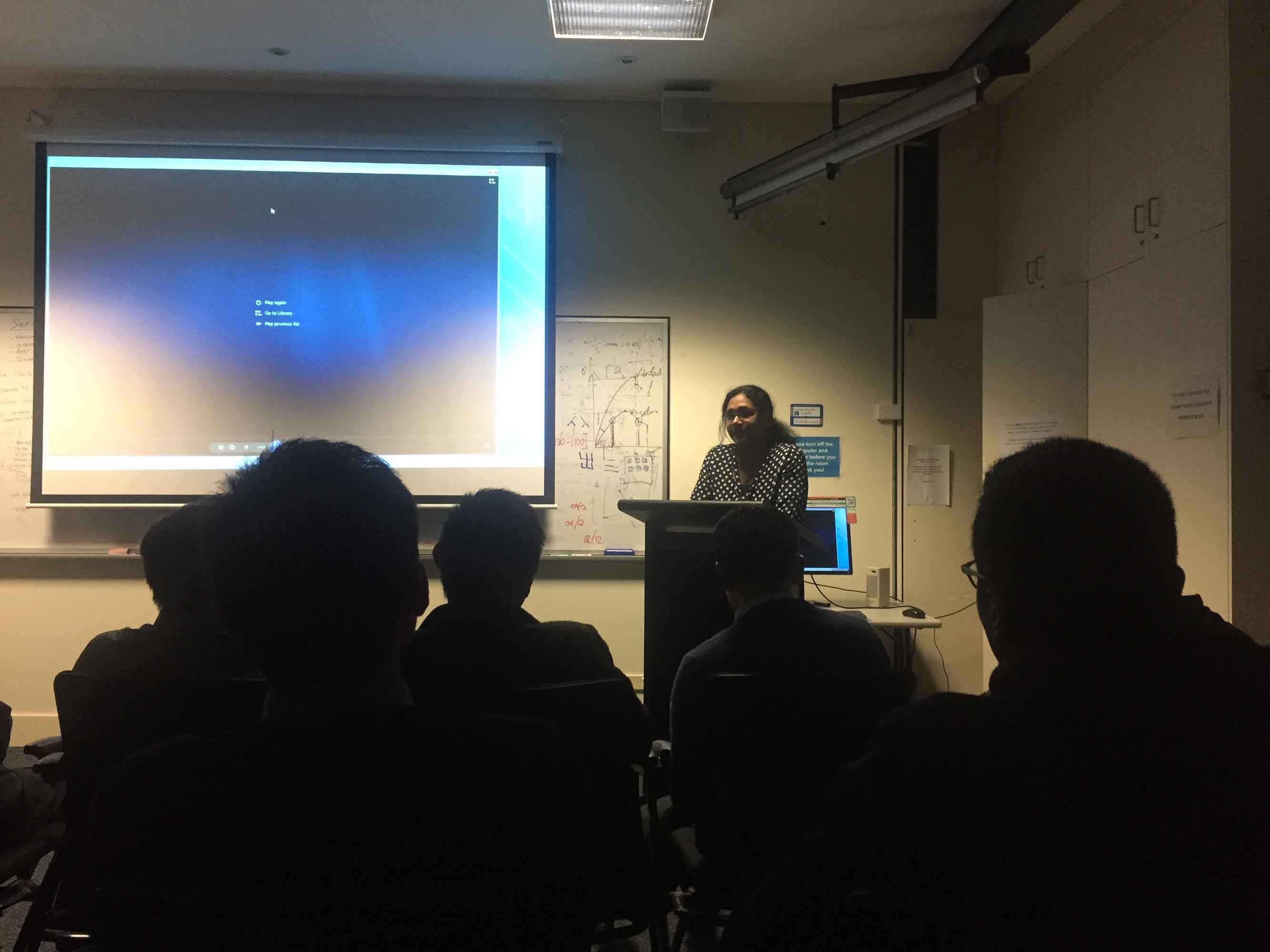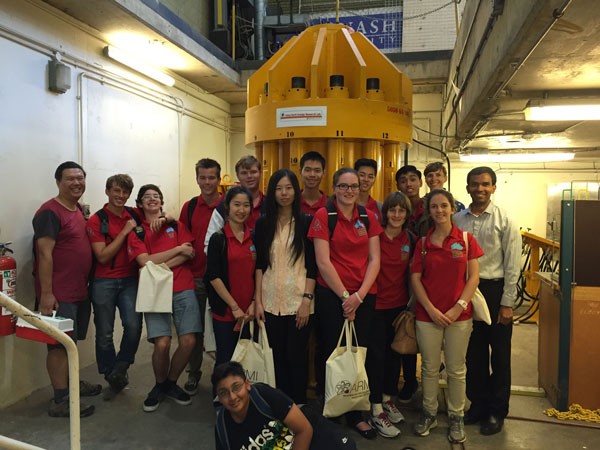Farewell party of Dr. Samintha
We are grateful for the enormous support you have extended to us through the years both in easy and in difficult times. It is with regret we bid you farewell, but with excitement and ecstasy we wish you all the very best in your future endeavours. Bon Voyage.
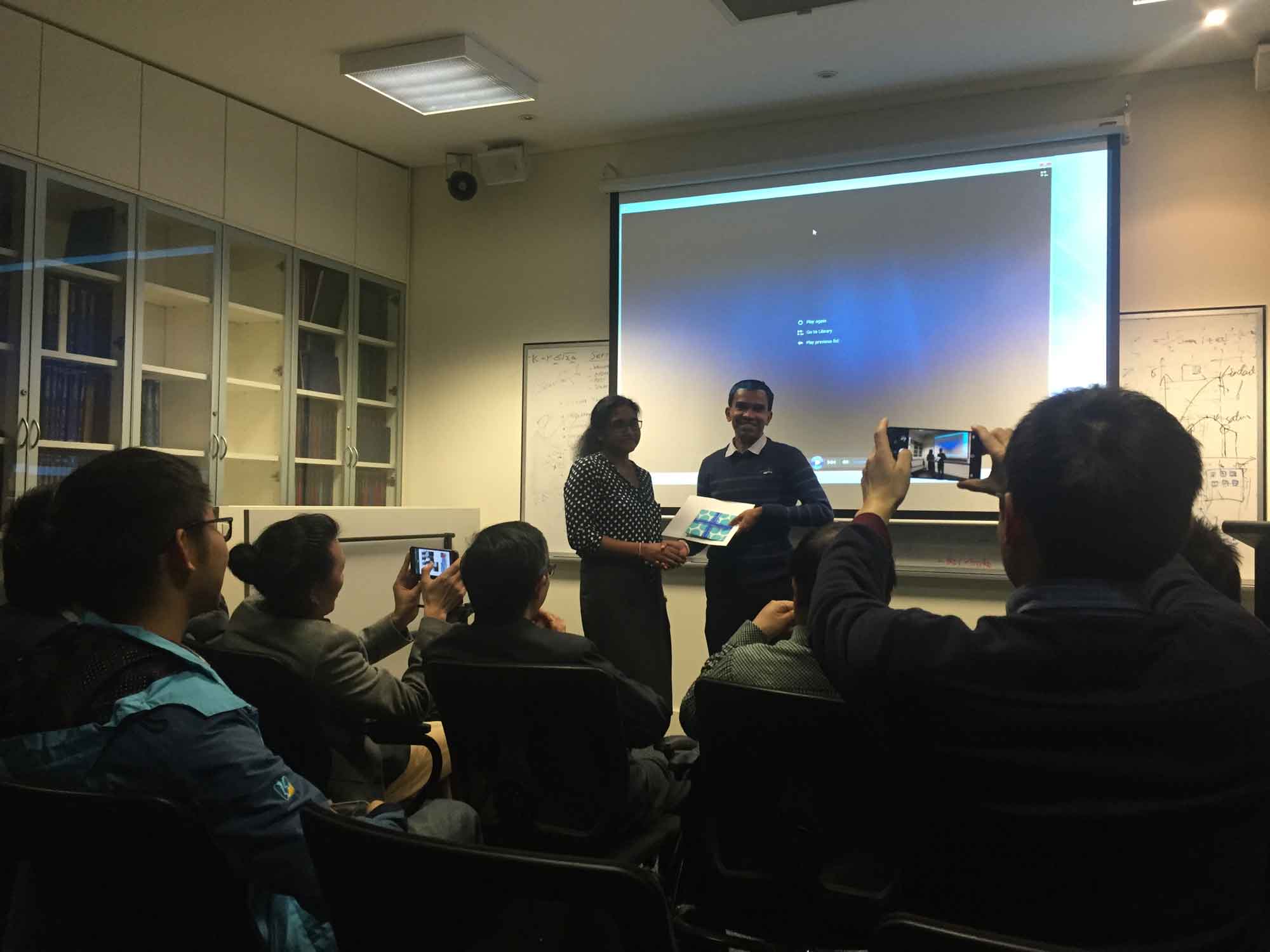
Analysis Software for Internal Stability of Granular Soils (ASISGS)
The potential of internal stability of granular soils can be evaluated using the three commonly used semi-empirical criteria: Kezdi (1969), Sherard (1979), and Kenney and Lau (1985). However, some issues exist and need to be addressed. 1) Only limited particle size distribution (PSD) data can be obtained using sieving analysis technique. 2) Some specific PSD data is necessary but difficult to be obtained through sieve analysis. 3) The secant slopes of PSD curves only can be computed manually.
Therefore, a software package named Analysis Software for Internal Stability of Granular Soils (ASISGS) was developed to address these problems. The ASISGS program was divided into two parts: ① Calculation Program for Parameter Values of PSD Models (CPPV), which is used to develop an optimal parametric model for representing the PSD curves of granular soils based on limited experimental data. ② Calculation Program for Secant Slope of PSD Models (CPSS), which can be used to calculate automatically the secant slopes of PSD curves according to the three commonly used semi-empirical criteria, so that the internal stability of granular soils which mainly depend on soil PSDs can be evaluated.
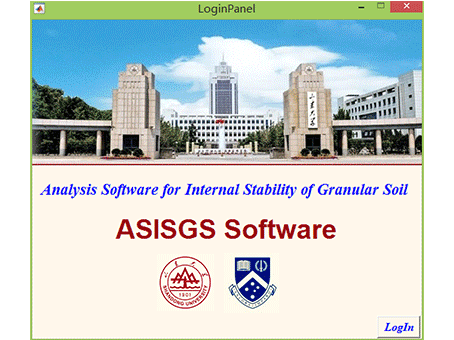
Prof Yasuhiro Fujimitsu from Kyushu University visited the 3GDeep Lab
Prof Yasuhiro Fujimitsu from Kyushu University visited the 3GDeep Lab in April to initiate collaborative
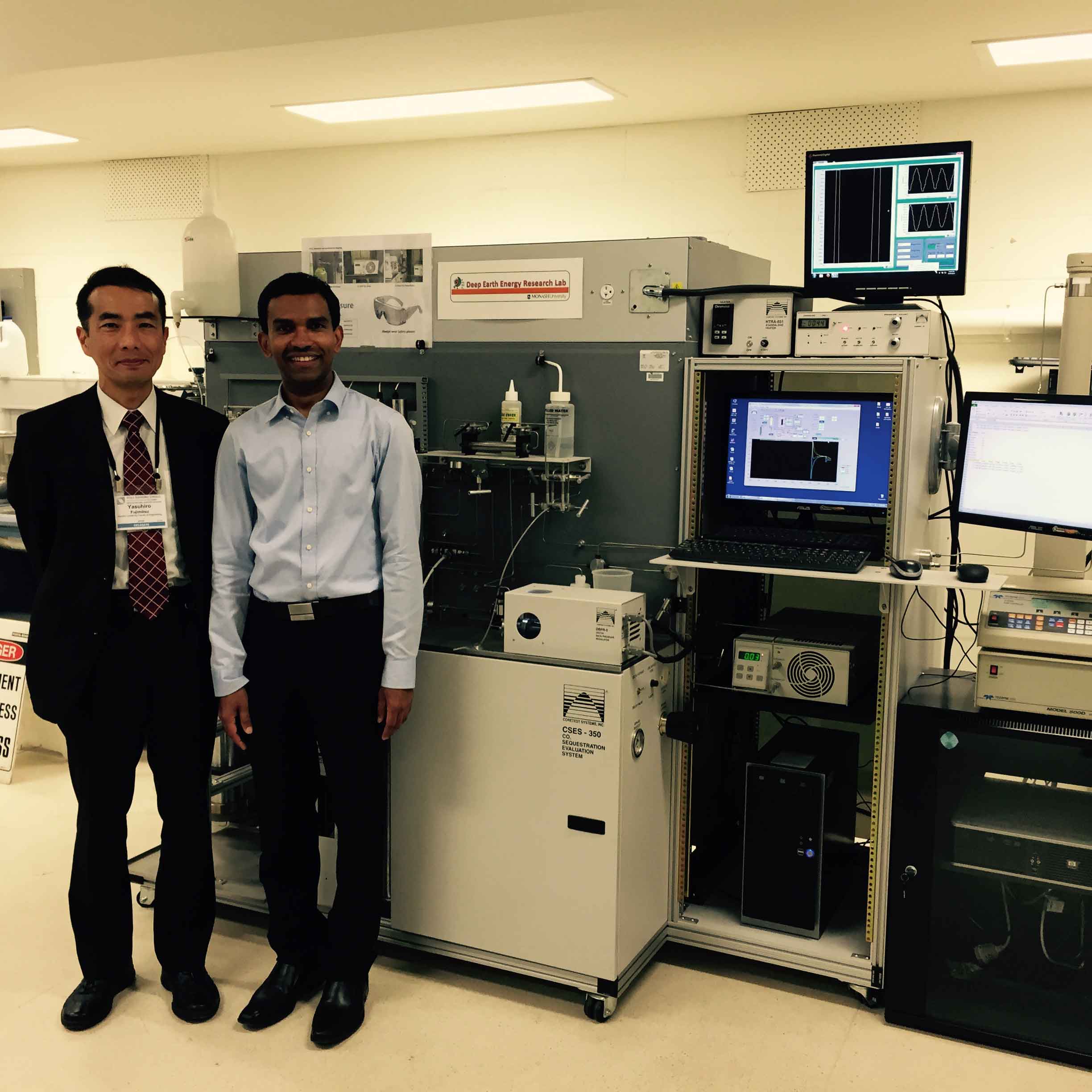
Vice Chancellor of UTP visited 3GDeep Research Laboratory
On 16th December 2014, Vice Chancellor of Universiti Teknologi Petronas (UTP) visited the 3GDeep Research Laboratory with other Malaysian delegates.
Datuk Ir. Dr. Abdul Rahim Hashim – Vice Chancellor
Solihuddin Ahmad Nasarudin – Registrar
Mohd Hatta Amran – Manager, Lab Facilities Services Department
Noor Affendy Mohamed Ali – Manager, Human Resources Management Department
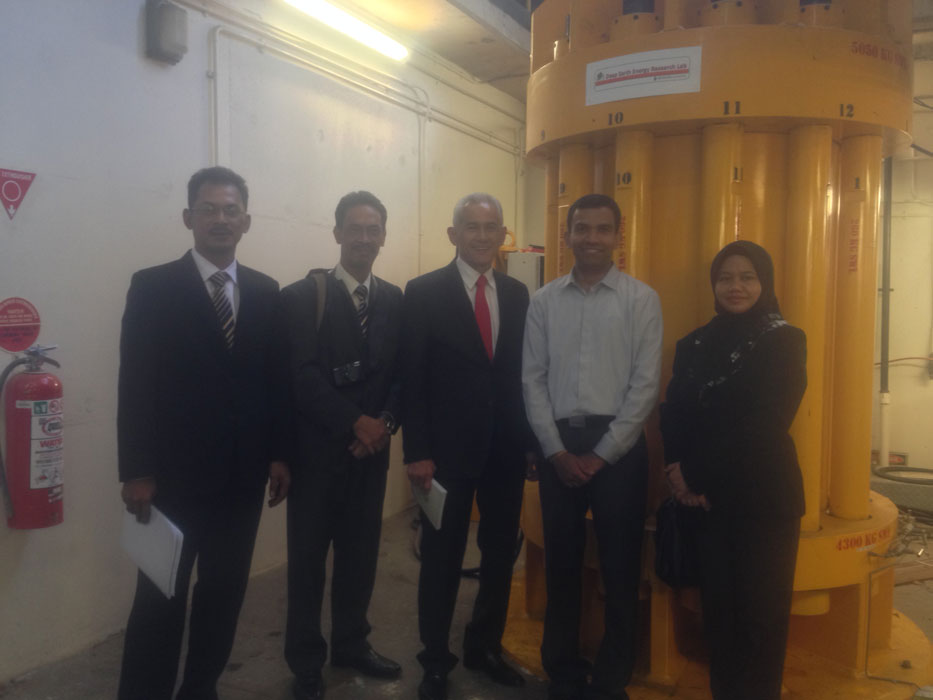
High-school Students visited 3GDeep Research Laboratory
On 02nd February 2015, high-school students that are finalists in the BHP Billiton Science and Engineering Awards, visited the 3GDeep Research Laboratory.
2014 - ROCHA Medalist
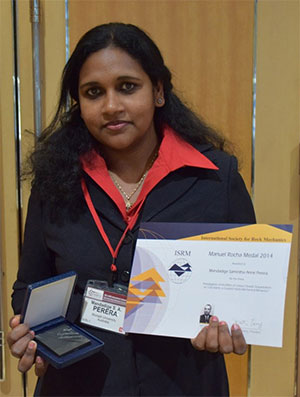 The International Society of Rock Mechanics (ISRM) annually awards a bronze medal and a cash prize for the World Best PhD Thesis in Rock Mechanics in memory of Professor Manuel Rocha, the second President and organiser of the first international congress of the ISRM. The wining thesis is selected based on; 1) Problem statement, 2) Appreciation of State of the Art, 3) Theoretical and/or practical advancements, 4) Verification of proposed solution and 5) Quality of Presentation of the thesis. The choice of the prize-winning thesis is the responsibility of the Rocha Award Committee, appointed by the President, chaired by the President, and including the Vice-Presidents and any others co-opted to assist in the review process. The committee then invite the Rocha Medal winner to attend the following ISRM conference as a guest to receive the award with providing all the expenses.
The International Society of Rock Mechanics (ISRM) annually awards a bronze medal and a cash prize for the World Best PhD Thesis in Rock Mechanics in memory of Professor Manuel Rocha, the second President and organiser of the first international congress of the ISRM. The wining thesis is selected based on; 1) Problem statement, 2) Appreciation of State of the Art, 3) Theoretical and/or practical advancements, 4) Verification of proposed solution and 5) Quality of Presentation of the thesis. The choice of the prize-winning thesis is the responsibility of the Rocha Award Committee, appointed by the President, chaired by the President, and including the Vice-Presidents and any others co-opted to assist in the review process. The committee then invite the Rocha Medal winner to attend the following ISRM conference as a guest to receive the award with providing all the expenses.
Prestigious Humboldt Research Fellowship
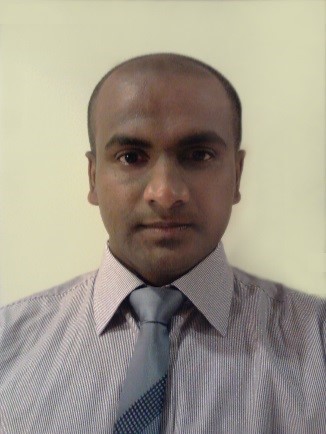
The award is offered by the Alexander von Humboldt Foundation, Germany. It promotes academic cooperation between excellent scientists and scholars from abroad and from Germany. The Foundation sponsors the best scientists and scholars as well as prospective leaders irrespective of regional origin or disciplinary focus.
Selection of awardees is based on the principle of academic self-governance: committees composed of scientists and scholars of all academic disciplines decide who will be sponsored, independently and solely according to standards of academic excellence.
4G - New Journal
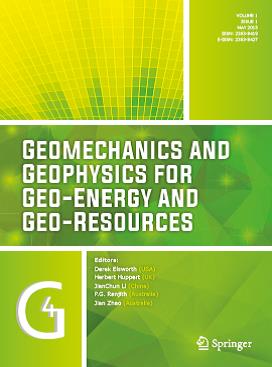
Name of the journal : Geomechanics and Geophysics for Geo-Energy and Geo-Resources
ISSN Print : 2363-8419
ISSN Electronic : 2363-8427
Link : http://www.springer.com/engineering/civil+engineering/journal/40948
Aims and Scope :
The journal G4 publishes original research, new developments, and case studies in the field of geomechanics and geophysics with special application to energy and resources in the subsurface Earth. This covers the full scope of geomechanics and geophysics including theory and analysis, laboratory and field experiments, numerical methods and modelling techniques, and engineering applications and technology development related to energy and resources. This scope includes discovery and recovery of conventional and unconventional hydrocarbons, mining and resources engineering, natural and enhanced geothermal energy, geotechnical engineering of energy storage, geological solutions for energy and resources including geological disposal of energy wastes including sequestration of carbon dioxide. All papers on these topics within the journal scope are welcomed.
2014 VC’s Award for Excellence in Postgraduate Supervision
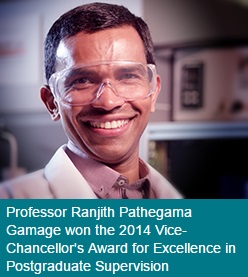 In recognition of his outstanding efforts as a postgraduate supervisor, Professor Ranjith Pathegama Gamage has won the 2014 Vice-Chancellor's Award for Excellence in Postgraduate Supervision.
In recognition of his outstanding efforts as a postgraduate supervisor, Professor Ranjith Pathegama Gamage has won the 2014 Vice-Chancellor's Award for Excellence in Postgraduate Supervision.
Ranjith is an ARC Future Fellow in the Department of Civil Engineering. Ranjith's lines of research ultimately converge on mitigation of climate change, an overriding challenge in our time; and he faces up to some of the greatest engineering challenges.

